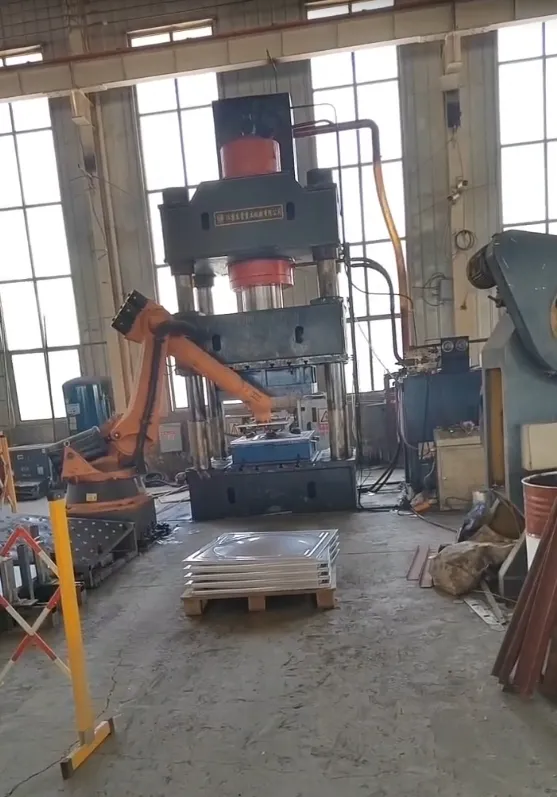loading...
- No. 9, Xingyuan South Street, Dongwaihuan Road, Zaoqiang County, Hengshui, Hebei, China
- admin@zjcomposites.com
- +86 15097380338
- Welcome to visit our website!
industrial water filter
The Importance of Industrial Water Filters Ensuring Quality and Sustainability
Water is an essential resource for nearly all industries, serving as a vital component in production processes, cooling systems, and even as a means of transporting raw materials. As industries grow and expand, so does the demand for clean and safe water. This is where industrial water filters come into play, providing the critical function of purifying water to meet operational standards and environmental regulations. In this article, we will explore the importance of industrial water filters, their types, applications, and the benefits they offer to industries seeking to improve sustainability and operational efficiency.
Understanding Industrial Water Filters
Industrial water filters are specialized systems designed to remove impurities, sediments, and harmful substances from water used in industrial processes. These filters can be customized to target specific contaminants, ensuring that the water quality meets stringent industry standards. Key industries that utilize water filtration systems include manufacturing, food and beverage, pharmaceuticals, energy, and agriculture.
Types of Industrial Water Filters
There are several types of industrial water filtering systems, each suited to different applications and contaminants
1. Mechanical Filters These filters use physical barriers to remove particulates from water. Common types include sediment filters and cartridge filters, which are designed to capture larger particles and sediment.
2. Chemical Filters These systems utilize chemical reactions to remove contaminants. Activated carbon filters are a popular choice, effectively reducing chlorine, volatile organic compounds (VOCs), and other chemicals that affect water quality.
3. Membrane Filtration Advanced filtration methods such as reverse osmosis (RO) and ultrafiltration (UF) utilize semi-permeable membranes to separate impurities from water. RO is highly effective at removing dissolved salts, heavy metals, and microorganisms, making it ideal for industries requiring ultra-pure water.
4. UV Filters Ultraviolet (UV) filtration systems use UV light to disinfect water by eliminating bacteria, viruses, and other pathogens. This method is particularly important in industries such as food and beverage, where hygiene is paramount.
5. Mixed Media Filters These filters combine multiple filtering materials to capture a wide range of contaminants. They are often used in applications where water quality is critical, allowing for comprehensive treatment.
Applications of Industrial Water Filters
Industrial water filters are utilized in various applications, including
industrial water filter

- Cooling Towers Water used in cooling towers must be kept free of impurities to prevent scaling and corrosion. Filtration systems help maintain efficiency and prolong equipment life.
- Process Water Many manufacturing processes require high-quality water for washing, mixing, or other applications. Filtration ensures that the water used is free from contaminants that could affect product quality.
- Wastewater Treatment Industrial water filters play a crucial role in treating wastewater before it’s released into the environment or reused
. They help companies comply with environmental regulations and reduce their ecological footprint.- Beverage Production In the food and beverage industry, water quality directly impacts taste, safety, and shelf life. Filtration systems ensure that the water used meets strict safety standards.
Benefits of Using Industrial Water Filters
Investing in industrial water filters offers numerous advantages for companies
1. Enhanced Quality By removing impurities and contaminants, industrial water filters significantly improve water quality, leading to better product quality and consistency.
2. Regulatory Compliance Industries are often required to meet specific environmental regulations regarding water usage and discharge. Effective filtration systems help ensure compliance, avoiding potential fines and legal issues.
3. Cost Savings Reducing downtime and maintenance costs associated with equipment failures due to water quality issues can lead to substantial savings. Additionally, recycling treated water can lower water consumption costs.
4. Sustainability Utilizing filtration systems contributes to more sustainable business practices by minimizing wastewater and reducing the consumption of fresh water resources.
5. Health and Safety Clean water is vital for the health and safety of employees and consumers. Ensuring that water used in production meets safety standards helps protect both workers and end-users.
Conclusion
In conclusion, industrial water filters are an essential component of modern industrial operations. By ensuring the quality and safety of water used across various applications, these filtration systems not only enhance operational efficiency but also promote sustainability and regulatory compliance. As industries continue to evolve and embrace environmentally friendly practices, the role of industrial water filters will undoubtedly become even more critical in safeguarding both human health and the planet. Investing in effective water filtration systems is not just a matter of operational necessity; it is a commitment to a sustainable future.
-
Revolutionary Modular Handrail Systems Redefine Safety StandardsNewsMay.15,2025
-
Innovative Water Treatment Technologies for Purer WaterNewsMay.15,2025
-
Innovative Square Water Tank SystemsNewsMay.15,2025
-
Innovative Galvanized Steel Water TanksNewsMay.15,2025
-
Innovative FRP Grating Products Revolutionize Industrial FlooringNewsMay.15,2025
-
Fiberglass Storage Tanks for Reliable Water SolutionsNewsMay.15,2025
-
The Benefits and Uses of Covered Grating SolutionsNewsMay.12,2025
